Documentation
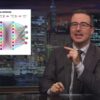
“Bring neural networks into the public eye!” – Max Peters
Reflecting on the fascinating research presented by Melvin Wevers on neural networks and the ongoing technical innovations within the field of computer recognition and identification software. Through a complex explanation of the mathematical and algorithmic techniques going into these research, Wevers showed us how computers are not just research tools, they are, as if they…
Read more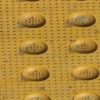
“Techno-Performance in a Knowledge Culture in Transition” – Jon McKenzie, Iris van der Tuin & Maaike Bleeker
Please register with NICA Masterclass with Jon McKenzie, Iris van der Tuin, and Maaike Bleeker offered by the Centre for the Humanities and the Transmission in Motion research group (UU), in collaboration with NICA and SPRING Festival. In this masterclass, we take Lyotard’s report on knowledge as a historical point of reference for a closer look at the performance…
Read more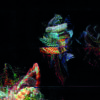
Iris van der Tuin appointed professor in Theory of Cultural Inquiry
We are very happy to share with you that our own TiM Community Member Iris van der Tuin, has been appointed Professor of Theory of Cultural Inquiry at the Faculty of Humanities! The chair is part of the Department of Philosophy and Religious Studies and is part of the Research Institute for Cultural Inquiry (ICON)…
Read more
“It’s time to nut up or shut up: can science catch up with technology?” – Alexandra Kinevskaya
For as long as humanity existed, people have been occupied with the essence of things around them. Philosophers, mathematicians, astronomers tried to understand the world since the ancient times, looking up at the sky, at nature, at art to find the answers to the most fundamental questions. Later many other scientists studied the air, the…
Read more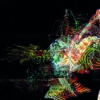
“Reconstituting the senses though and beyond media” – Elissavet Kardami
Frank Kessler’s lecture brought forward several questions about the role of the media in daily life and its potential to transform the way we perceive and describe our daily experiences. For example, I started reflecting on the ways that cinema has reconfigured the senses and shaped our experience of the world, and how it has…
Read more
“An Odd Couple: Vision and Truth” – Tamalone van den Eijnden
Frank Kessler’s session of Transmission in Motion on the 13th of January, the topic was “Media and the Reconfiguration of the Senses” with a special focus on vision. During the session, we were presented with several philosophers who somehow engaged with the topic such as Friedrich Nietzsche, Walter Benjamin, Béla Balázs, Vilém Flusser, and most…
Read more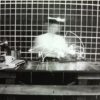
“Technology and the senses: an ethical account” – Irene Alcubilla Troughton
In the past session of Transmission in Motion, thanks to the lecture of Frank Kessler, we gained more insight on the role of the senses in different media, with special attention to the reconfiguration of them and the discussions around that topic from several scholars. Beginning with the legend of Zeuxis and his competitor Parrhasius,…
Read more
“Theatre and the Resensibilisation of the Senses” – Gido Broers
Frank Kessler addressed in his lecture several ideas on how different media affect the sensorial perception of the observer. The emphasis during this lecture was on media that are based on images; photography, film and television. What is the place of theatre in this story? In this short blog, I will address several concepts and…
Read more
“Revisiting McLuhan’s temperature of media” – Max Peters
There is hardly any figure more prominently present in the academic discipline of media studies than Marshall McLuhan. His theories have shaped and cemented the study of media, and he stands out at as a creative mind who coined, created and analyzed terms and concepts for media. However, this does not mean that his theories are…
Read more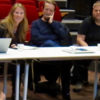
“Expert Meeting on Robotic development”- Nadine Grinberg & Swantje Schaeuble
Imagine: A woman brings her boyfriend to work every day. They take the metro together. She takes care he doesn’t fall but somehow he also appears independent. He makes a rigid but friendly impression. In fact, he would seem over-alert if it wasn’t for that slight, endearing smile. ’He’ is made from plastic and his…
Read more
